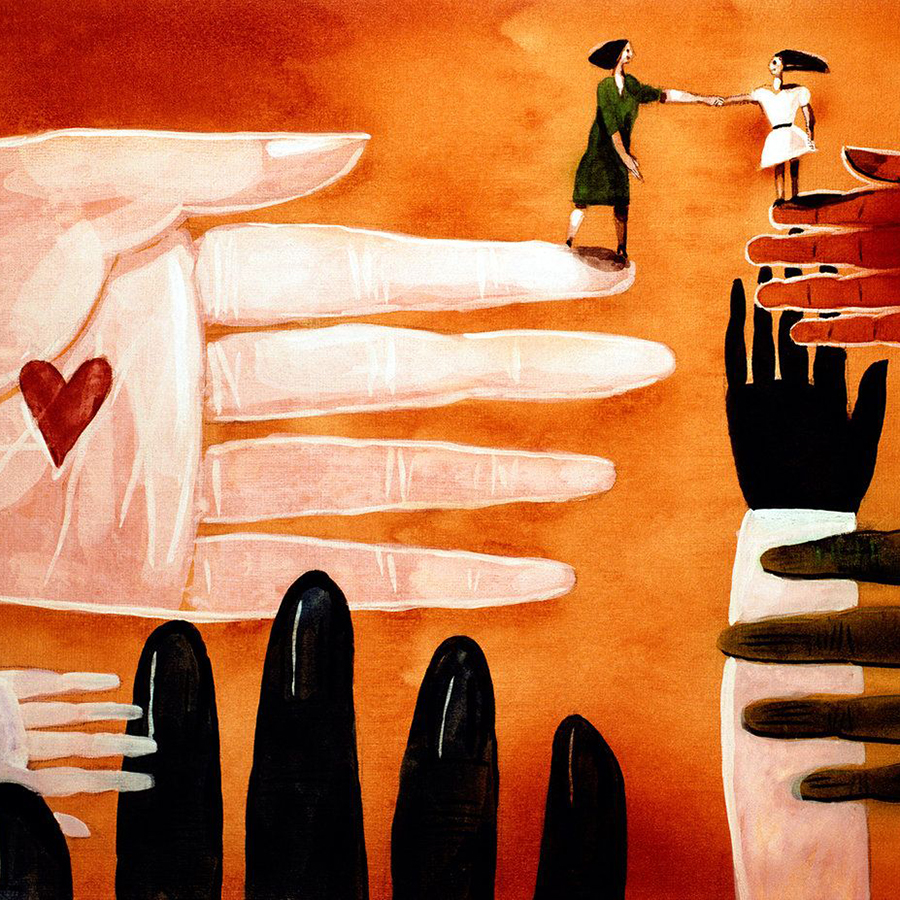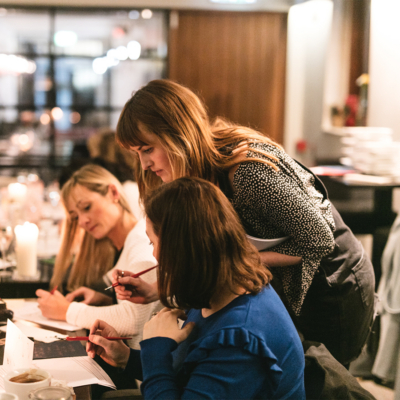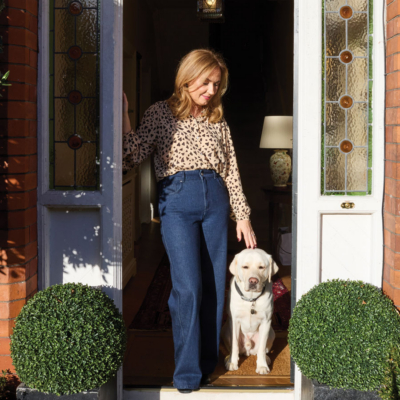The lives of carers become subsumed in the lives of those for whom they care, but resentment and great love can co-exist …
Stella was standing in front of the glass combing her hair when Suzanne, her daughter, walked in. Stella is well named because she is a natural star, a beautiful actor who gave up her stage career to look after her husband and family. Now, though, she was looking distraught. “What’s wrong?” Suzanne asked anxiously. Her mother turned round “What’s wrong?” she wailed. “Only that I look about a hundred”. Suzanne couldn’t help laughing. “But mum” she said, “you are about a hundred.” Suzanne was only slightly exaggerating. Stella is 98. Suzanne has left her life, her friends and her home in France to go back to Ireland to look after her beloved old mother and she does it with great grace. I am amazed and abashed because I do not think I could do such a thing. I am fundamentally selfish and too impatient. But Suzanne makes me think again. There might be hope for me yet.
“I didn’t think I could do it. I’ve been thinking about this and have not really sorted out my feelings about it, except that I have always known that I could never have been a professional carer, just not enough patience or what might be called goodwill towards humanity and not much goodness at all. Much too selfish.” And yet she has done it. Why? Where do we find the resources to tip our lives head over heels and help those whose lives have also tipped over; from being, for example, a sane person in a familiar world to living in a wild scenario with no boundaries in Alzheimer country; or a child with cerebral palsy; or a mother like Suzanne’s who has suddenly broken her bones and is immobile. It’s the old rag and bone shop of the heart. Love.
“In the case of looking after my almost centenarian mother who had been fit and active enough to break a hip and a wrist while speeding on her ‘rollator’ of an afternoon, there is enough love there to make the ‘care’ genuine and I find I will – and can – do anything for her without resentment. It is not easy, as she hates being dependent on anyone, and her immobility has made her totally so. Our roles are reversed in a way … she resists that as a child resists direction and protection, but she tells me all the time how much she loves me and how grateful she is that I am there. And so the ‘care’ is returned and I am grateful too.” I am so heartened to hear that it’s reciprocal because so often all one hears about carers is that their job is a burden without reward. One has only to lift a newspaper to read horror stories of old people being abused and beaten and neglected by the people who are paid to look after them. And many of those old people have families who in other days would have kept them at home and taken care of them as a matter of course but whose way of life – the necessity of making ends meet – precludes that option. As well, of course, as the option of not caring in every sense.
Diana Melly became a carer for her husband George, a singer and writer when he became ill. He never ever lost his sense of humour. When my husband asked him one day towards the end of his life how he was feeling he said amiably “How do you think I’m feeling? I’m fucking dying”. In George and Diana’s case, life copied art at the beginning of their mutual care for each other. George was a wild creative creature himself, one of the great pioneers and exponents of surrealism in England and knew André Breton the leader of the French surrealists, a famous figure back in the day who wrote a novel, Nadja, about a mad shadowy beautiful young woman. At first George saw a version of Nadja in Diana, a beautiful young woman.
Caring can be emotionally draining and wearing, and it’s easy to find oneself saying those unkind and vicious things.
Diana recalls, “When George and I began living together I was needy and neurotic. Not quite as mad as Nadja, but mad enough for George who greatly admired Nadja: he happily became my carer. Fast-forward 43 years through a complicated and often difficult marriage: George has lung cancer and dementia and I’ve begun to grow up and have become his carer. At the time I didn’t think of it as being reciprocal, it just seemed inevitable, if not always easy. When I had no idea how long it would go on for, I often felt quite desperate and would say unkind and vicious things. But when the doctor said he had less than a year to live I took to the caring role as if I’d been born to it. I’ve often thought how lucky we both were to take up those caring roles, and not for years which can wear thin both tempers and patience, but briefly.” Diana has hit on it. It’s the length of time, the day in and day out that wears one out. It’s easy to be kind and considerate to someone who is disabled whom one meets once in a while in the street or at someone else’s house, but as a constant it’s a different matter. Each case is banal and unique.
This is a typical blog from a carer: “It is a Saturday morning, not raining so that has to be a positive but for me as a carer what’s different? Nothing really, still the same routine, medication every hour, no conversation only with dog but never mind put the kettle on, make a cup of tea, dunk a few bikkies in and sure enough 20 minutes after getting up my other half is away with the fairies and asleep again.” There’s an aspect of marriage we don’t reckon when we promise to love honour and even obey. There’s not much honour to wiping a bum – all you can do I suppose is remember how you never minded doing it for a loved dependent baby. Beyond me though. And with the best will in the world – and wills are easily sapped – caring can be emotionally draining and wearing and it is easy to find oneself saying those unkind and vicious things.
Not so Betty and Mark, the parents-in-law of Lucy, 50, vivacious and full of life who has been diagnosed with terminal cancer. She has a seven-year-old daughter and Betty and Mark lived far away in the West Country. Betty, who had just retired, had always wanted to write and joined a writing group who became her friends and gave her a lot of encouragement and TLC. Yet they sold their house, left behind their friends and social life and moved to Leeds to become carers – to look after their granddaughter and help their daughter-in-law. Like Suzanne they uprooted their lives. The selflessness of it strikes me deeply. Moving house is high on the list of trauma events in one’s life never mind taking on a seven-year-old and a dying daughter-in-law. So how did she cope with a life of caring as well as a new life for herself? “To be quite honest,” Betty said simply “I didn’t have time to consider it at all. Moving house is such a big undertaking and I did it by rationalising everything. I convinced myself that it was exactly the right thing to do, that looking after my granddaughter was top priority. And it was the right thing to do. I’m always aware that Lucy is going to die so it’s difficult to know how frank or how irritated one can be so you end up being protective.”
In Ireland, who knows how many carers there are who do it without recognition. There is a cash payment – the Carer’s Support Grant (formerly Respite Care Grant) paid by the Department of Social Protection to full-time carers in order to give them a break. “Despite working seven days a week, 365 days a year, carers are entitled to no holidays and no breaks,” Catherine Cox of Family Carers Ireland (formerly The Carers Association Ireland) points out. “This grant goes some way towards allowing this.” Then there is the monthly Domiciliary Care Allowance paid to the parent or guardian of children under 16 who have a disability so severe that it requires care and attention and/or supervision substantially in excess of another child of the same age. Which raises the question – if your child will never know who you are, are you still a mother? The exhausted parent who asked this question about her severely disabled child (and who answers it empirically by her unremitting love and attention) also said that she has learned that the essence of humanity lies far deeper than mere development. She adores her five-year-old who has the age and behaviour of a two-month-old baby. A smiley baby. Any internet trawl will turn up stories of parents like her who have to ventilate their children every 20 minutes and work in shifts day and night and whose caring leaves no room for energy for other pursuits. It’s very hard on the other children in the family as well as on the parents. That grant is a lifeline to sanity for many full-time carers.
It can happen so suddenly, the role reversal, the new drama in which we find ourselves.
I don’t know how one can continuously care for someone if you don’t love him or her. Even so, love wears thin with dependence and repetition, and sometimes I know the rage can drive you to want to smack someone who can’t help themselves – literally can’t – as if at some sour sad mourning level one blames them for their condition. In the wonderful Michael Haneke film Amour, about a loving couple whose lives are thrown into havoc when the wife has a severe stroke, her husband, the most tender and devoted of men, at his wit’s end, hits her in frustration and despair. He does more but if you haven’t seen it – and you should – I won’t reveal what that is. It is a most wonderful portrait of love and tenderness and the most horrible and defeating too.
Sharon has a husband who can hardly walk. He’s cheerful and stoic, and she’s often neither. She hates that the man she loves who strode the world, tall and strong, now moves at snail’s pace, is shrunken and bent from a disease she thinks of as The Thing; too often her hatred for this vile visitation spills into dislike for him and she blames him for being ill. She knows that it’s not rational. Often, she feels no sympathy, but is angry with him for not being able to mend himself. She tries to stop herself feeling like this, but her frustration breaks though with impatience and irritability, and she knows that there’s no point in making plans for the future. She has become a carer and she revolts against the role, but it is necessary. There is an old Russian proverb: when the woes come, open wide the portals.
I remember when woe entered my life via my mother. I had no idea what was happening. I had just come over from London and she, the most sane and pragmatic of people, told me how affronted she was by Gloria Hunniford being rude to my brother on the Ulster Bus. As far as I knew, my brother had never been on an Ulster Bus and I couldn’t think what Gloria would be doing on one either – I called my older sister to tell her the joke. She, wiser than me, knew immediately that we had entered the blast zone of Alzheimer’s. How I saw my mother deteriorate fills me with dread that it might happen to me. You’re blindsided by devastation when you realise that your mother thinks you are her mother and is frightened by someone she has been married to for decades. You wonder is she living in bedlam, a tenement slum of the mind, or in a private state of myth within myth. Best not to know. I want the sure extinction that we travel to and shall be lost in always to be death, not the death of my faculties.
Whichever, it’s a territory of existence I never want to enter. I do not want to turn the people I love into my carers. I have given Legal Power of Attorney to my children, so they have control of my estate. I made a will, so that when my time comes I will not be kept alive artificially. No one can make me stay alive under certain conditions which I have written out carefully. I will not endure or have others endure the impossible deformity of my life.
From the archives: originally published in 2013.
Writing Home, by Polly Devlin, 2019 (Pimpernel Press.)
READ MORE: Toxic Positivity – Why It’s OK To Not Be OK Right Now










